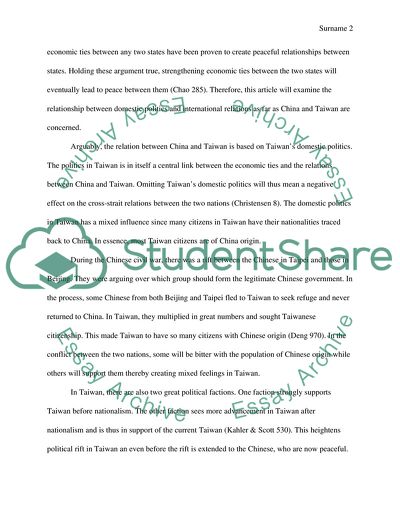Cite this document
(China and Taiwan Relations Research Paper Example | Topics and Well Written Essays - 2250 words, n.d.)
China and Taiwan Relations Research Paper Example | Topics and Well Written Essays - 2250 words. https://studentshare.org/politics/1876767-cross-strait-relationtaiwan-china
China and Taiwan Relations Research Paper Example | Topics and Well Written Essays - 2250 words. https://studentshare.org/politics/1876767-cross-strait-relationtaiwan-china
(China and Taiwan Relations Research Paper Example | Topics and Well Written Essays - 2250 Words)
China and Taiwan Relations Research Paper Example | Topics and Well Written Essays - 2250 Words. https://studentshare.org/politics/1876767-cross-strait-relationtaiwan-china.
China and Taiwan Relations Research Paper Example | Topics and Well Written Essays - 2250 Words. https://studentshare.org/politics/1876767-cross-strait-relationtaiwan-china.
“China and Taiwan Relations Research Paper Example | Topics and Well Written Essays - 2250 Words”. https://studentshare.org/politics/1876767-cross-strait-relationtaiwan-china.


